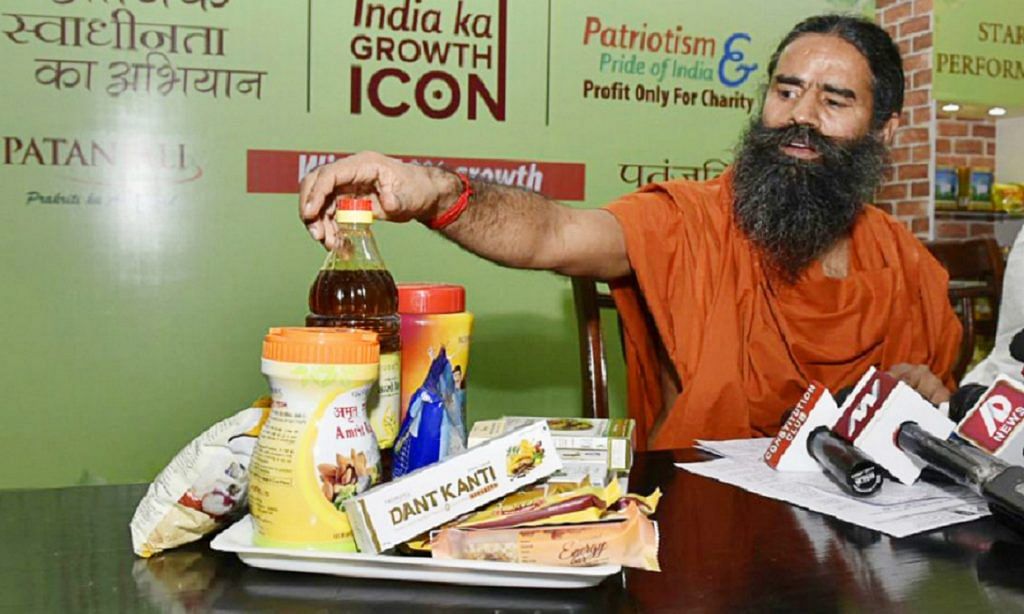Indian millennials are embracing this hipster culture too and no other company has benefited from this as Patanjali has.
The world is seeing the emergence of the hipster subculture all over again. Food is being served on wooden boards and drinks in coconut shells and clay cups. From our food to the fabric, everything is organic. Indian millennials are embracing this hipster culture too and no other company has benefited from this as Patanjali has.
A few years ago, Patanjali scored well among the groups it was expected to — the retired uncles and aunties, those going through the middle-life crisis and, then, rural India, where the best medicines for any ailment are still milk and ghee. But the secret ingredient to Patanjali’s meteoric success is new demographic: The Indian millennials.
In a globalised consumer culture, global brands don’t cut it for the millennials somehow. They may use them but they don’t want it to erode their cultural pride even a bit. Ayurveda is cool again. As is any talk about the ancient wisdom of the Vedas. That’s where the Patanjali appeal comes in. One would have assumed that it would stick to selling churan or chawanprash, but is now selling instant noodles, aloe vera gel, face packs, conditioners and health bars. And now there is even talk of Patanjali clothing.
Even Fabindia, which seems to be the sole provider of clothing to half of Delhi’s indie-hipsters, can’t be swadeshi enough for the Baba line.
Millennials are lapping it all up. But with an important caveat. It is still cool to make fun of Baba Ramdev.
He may now be a business giant but he still remains the butt of many jokes and memes on Facebook and Twitter. But even as we laugh, his business is growing bigger. Which other brand can you think of where the owner and the product model are lampooned even as the sales soar?
So, everytime a friend who usually makes fun of everything saffron unwraps a Patanjali health bar, I marvel at the amazing irony.
The defence always goes something like this: “It tastes good and kills my hunger pangs, and it’s cheap,” or “It’s a homegrown brand.”
Before Patanajali landed on the scene, ayurvedic beauty brands were really elitist and unaffordable. But Patanjali offers the Indian youth a heady mix of price and pride.
Another friend jumps to defend Patanjali as she turns her Apple laptop towards me to show the prices of the products on the ‘Big Bazaar’ website, “Dude, see the price. See how cheap it is and it’s made here in India. I mean if you are going to use chemicals in your hair, you might as well use ones that are created in your own country instead of ones that are imported from China or anywhere abroad, this is my bit of deshbhakti.”
“Says the girl who just bought Morrocon oil for Rs 1,800 last night,” chuckled another.
“Yes, and I will use that Morrocon oil with my Patanjali shampoo,” the first one retorted.
I let that conversation be, half convinced that it’s something I need to try but with caution. Who knows, I might risk my ideology and end up really enjoying the products.
Whether we like it or not, there seems to be no stopping Patanajli among the young — they can be Left, centre or liberal, the economically-right-but-socially-left gang, the Fabindia-wearing krantikaris, the halla-bol street theatre groups, Tinder-swiping teenagers and campus protesters. Many of us are aware that the concept of ‘swadeshi products’ is a marketing gimmick feeding into the prevalent toxic nationalism. But it is so tempting to pick up a toothpaste that costs half as much as its videshi counterpart, especially when you have only a Rs 2,000 allowance, and there are so many Rs 10 campus chais to be had to discuss politics of religious fundamentalism over.
The West has a kind, halo-ed stereotype about yoga gurus. Baba Ramdev shatters them all. He is not calm, quiet, and disconnected from the world. He is loud, political and possesses the hustle of a quintessential salesman. His business rise was based on WhatsApp forwards about harmful noodles and similar swadeshi hearsay — a sureshot route to anything from election victories to communal riots these days.
A hardcore Leftist friend of mine said that while the products were promoted and liked for being swadeshi and ayurvedic, the Ramdev empire was still a capitalist venture enjoying tax exemptions in the name of being a “charitable trust”.
There are rumours of Baba buying an island and turning it into Patanjali land. A scary thought. While the products don’t seem like the end of the world, this sure hints at one.
Gurmehar Kaur is a writer and student activist.
